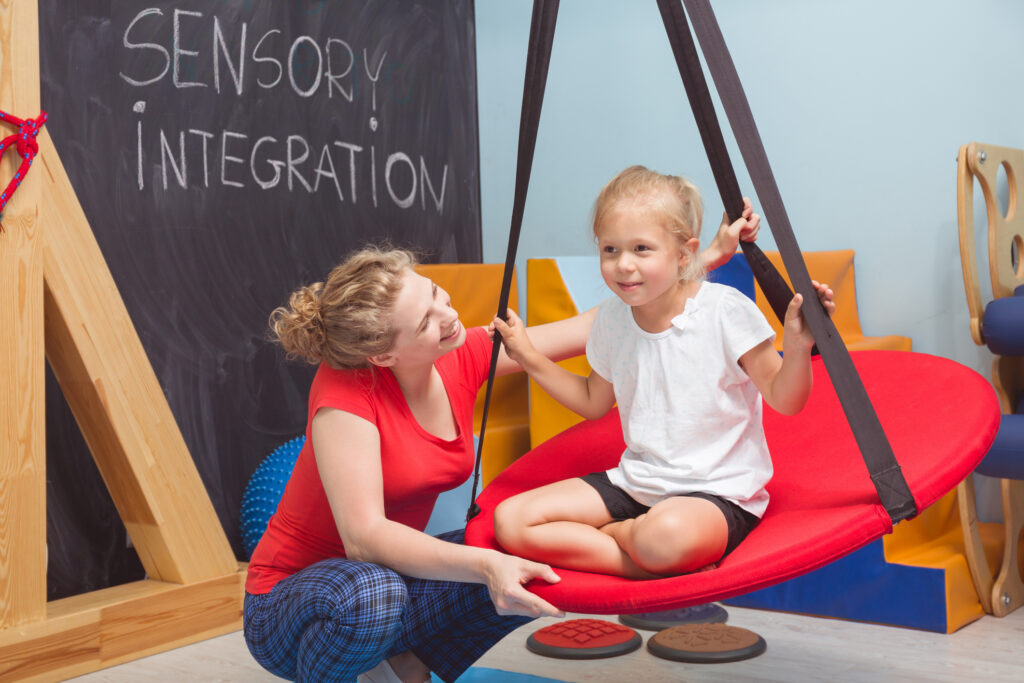Why It’s Important to Ask the Right Questions
Applied Behavior Analysis (ABA) therapy can provide immense benefits for children diagnosed with autism spectrum disorder (ASD) and related developmental disabilities. However, the effectiveness of this evidence-based approach depends heavily on the quality and fit of the provider. Not every ABA clinic operates the same way, and the right match will depend on your child’s specific needs, learning style, and the values of your family.
This comprehensive guide outlines key areas parents should consider when selecting an ABA provider. It includes questions to ask during your initial consultations, along with explanations of what to look for in the answers. The goal is to help you identify a clinic that offers thoughtful, individualized care and is equipped to deliver consistent, measurable progress.
Credentials and Training
Are you a Board Certified Behavior Analyst (BCBA) or Board Certified Assistant Behavior Analyst (BCaBA)?
These professional designations reflect different levels of formal training. A BCBA holds a master’s degree and has completed supervised fieldwork. A BCaBA holds a bachelor’s degree and operates under the supervision of a BCBA. Verifying credentials ensures that your child’s program is directed by professionals with the appropriate education and hands-on experience.
How many years have you been practicing?
Years of clinical experience are often a good indicator of how refined a provider’s approach is. A therapist with extensive time working with clients will typically have more strategies for handling complex or nuanced behavioral concerns. That said, newer BCBAs can also be very effective, especially when part of a well-supported clinical team.
What ongoing training or professional development do you participate in?
The science behind ABA is continually evolving. Providers should stay current with research and attend trainings, workshops, or conferences. Ask how often they complete continuing education and how those insights shape their therapeutic practices.
Do you have training in specific methodologies like RFT, PRT, or VB?
While standard ABA principles remain the foundation of therapy, some children respond especially well to models such as:
- Relational Frame Theory (RFT): Emphasizes cognitive flexibility and the development of language through relational learning.
- Pivotal Response Treatment (PRT): Focuses on motivation and key skills that unlock broader learning.
- Verbal Behavior (VB): Prioritizes functional language development and learning through communication.
Training in these models may enhance the provider’s ability to tailor therapy to your child’s learning profile.
Assessment and Treatment Plans
How do you perform initial assessments and determine treatment goals?
Initial assessments provide a roadmap for therapy. Ask how the team evaluates communication, play, self-help skills, problem behaviors, and social functioning. Comprehensive evaluations should include standardized assessments, structured observation, and input from parents and caregivers.
How often do you reassess progress and update treatment plans?
Goals should evolve as your child grows. A quality provider regularly reviews progress—usually every three to six months—and updates goals accordingly. Stagnant treatment plans can limit your child’s development.
How are goals and objectives selected?
The most meaningful goals address behaviors that impact your child’s quality of life. Ask whether the clinic incorporates input from families, teachers, and other service providers. Goals should be relevant to real-life situations and focused on long-term skill development.
Intervention Techniques
What specific techniques do you utilize in sessions?
Different clinics use different ABA techniques. Common methods include:
- Discrete Trial Training (DTT): Highly structured and skill-specific instruction.
- Natural Environment Teaching (NET): Encourages learning through play and everyday interactions.
- Incidental Teaching: Builds on the child’s spontaneous interests to teach functional skills.
You should feel confident that the provider’s preferred methods align with your child’s temperament and learning preferences.
How do you address challenging behaviors like aggression or self-injury?
Effective ABA identifies the function behind behavior. Ask if they use function-based assessments and positive behavior support strategies. Be cautious if the provider relies on punitive measures, as these are not considered best practice in modern ABA.
How is play, creativity, or the child’s interests incorporated?
The best ABA providers use play-based strategies to keep children engaged and motivated. Therapy should not feel like punishment. It should balance structure with exploration, creativity, and joy.
Family Involvement
How are parents or caregivers involved in therapy?
Caregiver collaboration is a vital part of successful ABA. Ask how often you will meet with therapists, whether you will observe sessions, and how you will be included in the decision-making process.
Do you provide parent training?
Parent coaching ensures that therapeutic strategies continue at home. Ask what topics are covered in training, how often sessions are held, and whether they are part of your regular care plan.
How is family feedback incorporated?
Therapists should actively seek and integrate your feedback. If you notice changes in behavior at home or have concerns about specific techniques, the team should be open to revising strategies and working collaboratively with your family.
Logistics
How often are sessions, and how long do they last?
Most ABA programs recommend 10 to 40 hours of therapy per week, depending on your child’s needs and availability. Make sure the proposed schedule is realistic for your family and that the session length is appropriate for your child’s attention span.
Is therapy clinic-based, in-home, or a hybrid model?
Each setting has advantages:
- Clinic-based: Offers a controlled environment with opportunities for peer interaction.
- In-home: Promotes skill generalization within natural routines.
- Hybrid: Combines both approaches for greater flexibility and coverage.
Consider which model would best suit your family’s daily routines and your child’s needs.
What is your cancellation or rescheduling policy?
Families occasionally need to cancel or shift appointments. Ask how the clinic handles last-minute changes, whether makeup sessions are offered, and if any fees are involved.
Data Collection and Progress Monitoring
How is progress tracked during sessions?
ABA is a data-driven field. Therapists should collect session-level data on skill acquisition and behavior reduction. This information should be used to evaluate the effectiveness of interventions and guide decision-making.
How often will we receive progress reports?
Clinics should share updates on a regular basis. Ask how often reports are provided and whether they include both narrative summaries and visual data (such as graphs or charts). Clear, transparent communication is essential for tracking growth.
How is data accuracy and consistency ensured?
Reliable data is critical to measuring outcomes. Ask whether the clinic uses interobserver agreement checks, staff training protocols, or regular supervision to ensure consistency across team members and sessions.
Philosophy and Approach
What is your overall philosophy toward ABA therapy?
Therapists should be able to clearly explain their guiding principles. For example, some programs are highly structured and skills-based, while others prioritize naturalistic instruction and social-emotional learning. Their approach should be aligned with your child’s personality and your family’s values.
How do you stay current with ABA research and best practices?
Ask about how the provider stays informed—whether through attending conferences, subscribing to research journals, or engaging in peer consultation. Commitment to ongoing learning is an indicator of clinical excellence.
Can you share testimonials or references from past clients?
Hearing from other families can provide helpful insight into the provider’s communication style, professionalism, and consistency. Ask for references or look for testimonials on their website or Google profile.
How do you collaborate with other providers like speech therapists or occupational therapists?
Children with autism often benefit from coordinated care. A collaborative team helps ensure consistency across therapies and avoids conflicting goals or strategies.
Do you participate in school meetings and collaborate with education teams?
Providers should be willing to attend IEP meetings or communicate with teachers and school staff. When therapists and educators work together, skills can be reinforced in both settings.
FAQs to ask an ABA Provider in Texas
- Are you in-network with Texas Medicaid or Texas-based insurance plans?
- Texas has its own Medicaid waivers and managed care programs (like STAR Kids) that can impact coverage for ABA.
- Some providers work with state-specific plans such as Texas Children’s Health Plan, Superior HealthPlan, or Cook Children’s Health Plan.
- Are you a licensed provider under the Texas Behavior Analyst Licensing Act?
- As of 2020, Texas requires BCBAs and BCaBAs to hold state licensure in addition to national certification.
- Asking confirms compliance and ensures oversight under the Texas Department of Licensing and Regulation (TDLR).
- Do you assist with the paperwork for Texas Medicaid waivers (e.g., CLASS or HCS)?
- Families navigating Community Living Assistance and Support Services (CLASS) or Home and Community-based Services (HCS) may benefit from a provider familiar with the process.
- Are your services eligible for TEA-funded support or coordination with local ISDs?
- Parents often seek providers who can collaborate with Texas school districts (ISDs) and integrate into ARD meetings or IEP development.
- TEA (Texas Education Agency) guidelines sometimes shape how private services supplement school-based accommodations.
- Do you provide in-home services across specific counties in North Texas (e.g., Dallas, Collin, Denton)?
- Some providers are limited to certain service areas due to licensure, staffing, or insurance region boundaries.
- This is especially relevant for rural or suburban families in the greater DFW metroplex.
Why Choose The Helm for Your Child’s ABA Therapy?
Choosing an ABA provider is a significant decision, and parents deserve a team that values transparency, evidence-based care, and personalized support. At The Helm, our mission is to provide high-quality, family-centered ABA services that support each child’s unique developmental journey.
We offer a dynamic team of Board Certified Behavior Analysts (BCBAs) and Registered Behavior Technicians (RBTs) who are trained in both traditional ABA and naturalistic methods such as Natural Environment Teaching (NET). We use modern behavioral science to make learning meaningful, engaging, and individualized.
What sets The Helm apart:
- One-on-One Focus: Each child receives a fully individualized ABA program built around their strengths, challenges, and learning style. Goals are developed collaboratively and updated regularly.
- Center-Based Group Sessions: In addition to individual therapy, we offer group programs where children can build social, communication, and daily living skills through structured play and peer interaction.
- Parent Coaching and Support: We work directly with families through regular coaching sessions, strategy sharing, and home-based resources. Parent involvement is a core part of our treatment model.
- Customized Progress Monitoring: Every child’s development is tracked with tailored assessments and robust data systems. This allows for quick adjustments and clear visibility into long-term growth.
- Evidence-Based Practice: Our therapists use current research to guide treatment plans. We maintain high standards for ethical practice, goal relevance, and measurable outcomes.
Finding the right ABA therapy provider can feel overwhelming, but asking thoughtful, informed questions can help you identify a clinic that will truly support your child’s development. The right provider will not only have strong clinical credentials, but also a commitment to collaboration, responsiveness, and your family’s long-term goals.
At The Helm, we are ready to walk with you on this journey. Whether you are seeking in-home therapy, group programming, or parent training, our team is here to help your child reach their full potential.




